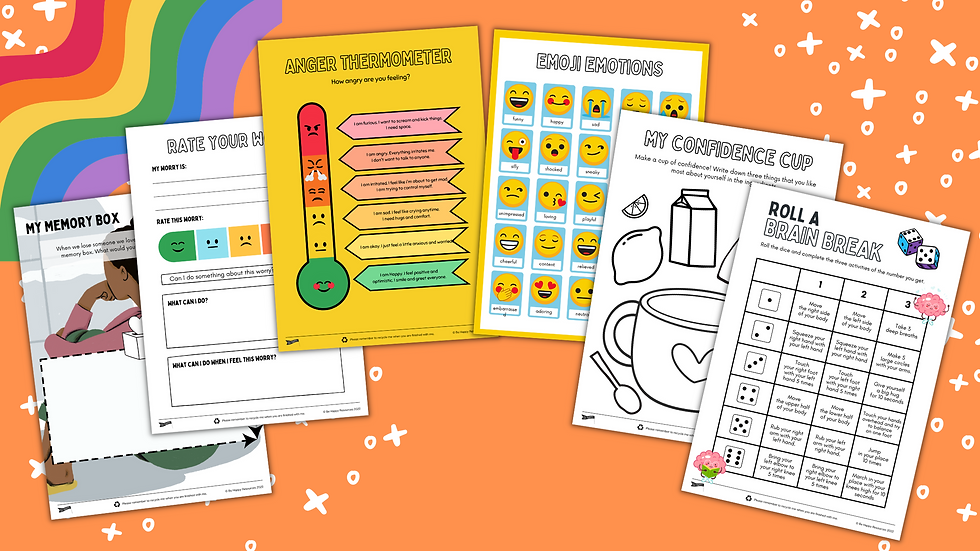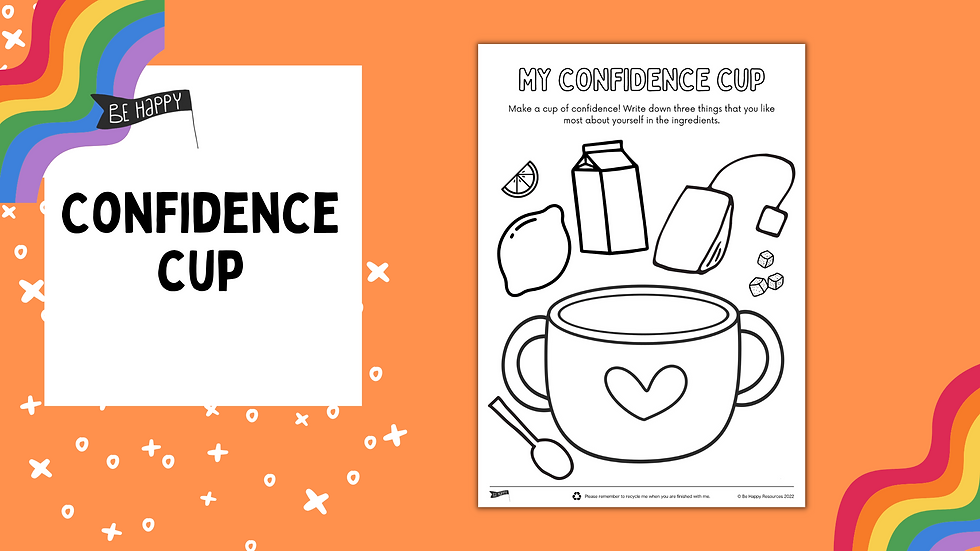What's New This Week? - 22nd July
- jidixon2004
- Jul 22, 2022
- 2 min read
It's officially the summer holidays! Take a look at our new activities and prints this week.

This week we have another new grief activity for kids and a new emotion print. Scroll down to see our latest mental health activities for children age 3-11.

Rate Your Worry - A simple and effective worksheet to help your child with any worries they are having. How to help your child ease their worries with this resource - this activity helps your child to acknowledge any worries they have and how distressed they feel about them. It also gets them thinking about any steps they can take to reduce their worry.

A new anger resource for kids, our Anger Thermometer helps your child to recognise when they are becoming angry so that they are able to manage it more effectively. This print allows them to point on the scale to how angry they are feeling, using associated colour shades, and think about ways they can stay in the green.

A fun feel-good wellbeing game for kids - Roll a Brain Break is sure to release any tension they are feeling. This is also a great grounding exercise to help children through any big emotions they may be feeling, such as frustration, worry or panic, by having them focus on moving parts of their body. All you need is some dice!

My Memory Box is our new grief activity for children age 6+. We know that grief can be an uncomfortable subject to talk about, but it's important that we help our children deal with complicated feelings such as grief with discussions and acknowledgement. This activity helps your child to reflect on their loss, thinking about what they would put in a memory box if they could. These can be actual memories, or objects and items.

My Confidence Cup - a quick, colour in activity that boosts self esteem. Ask your child to make a cup of confidence! - Simply write down the three things they like most about themselves and decorate their cup. When they need to feel confident, imagine they are taking a sip from their cup!

Finally this week, we've also uploaded a new emotion print featuring 25 emojis and emotions. We know that older children age 6+ and those familiar with smart devices particularly respond well to emojis. You can display this print in your classroom, child's bedroom or use it to discuss emotions and feelings.
Which resource is your favourite this week?
We are also excited to bring you one of our new resource packs over the next few days - our All About Me Pack will feature over 30 pages of feel-good. activities and worksheets to build confidence, self esteem and resilience.
Want to access all these resources and more? Join our Hub now from just £1.99 a month.






Comments